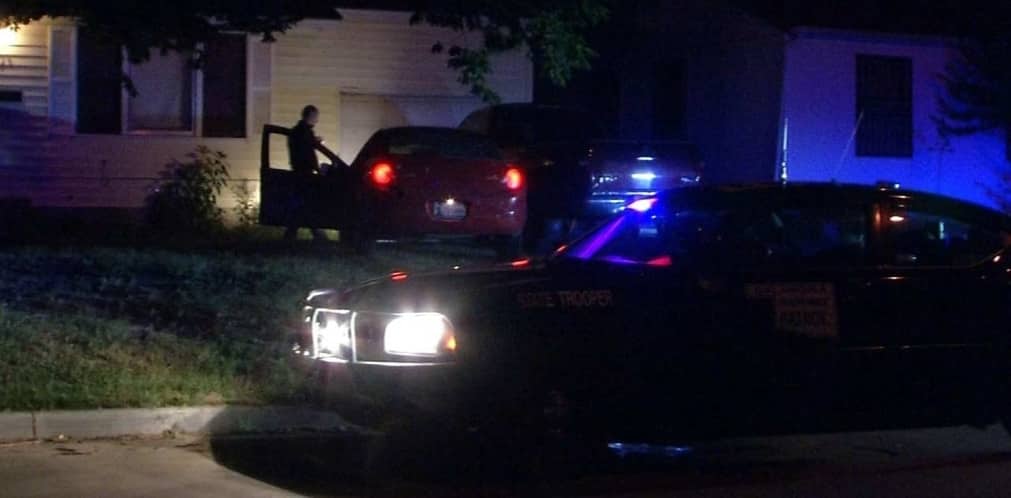Ah, the driveway—a seemingly innocuous space that serves as a mere gateway to our abodes. Yet, it brims with curious possibilities and sometimes, unsettling implications. One of the most pressing questions that linger in the minds of many is whether one can incur a Driving Under the Influence (DUI) charge while comfortably ensconced in their own driveway. The answer might surprise you, as it dances around the intersection of legality, privilege, and personal responsibility.
Firstly, it’s vital to demystify the legal framework surrounding DUI charges. The premise of such laws is centered on the operation of a motor vehicle while impaired by alcohol or drugs. At first glance, one might presume that being parked at home, particularly in one’s driveway, offers a sanctuary from these legal ramifications. However, the reality is often more complex than it appears.
In most jurisdictions, the law states that the act of driving itself is not strictly confined to moving a vehicle down a road. Instead, law enforcement can assert that an individual is “in control” of a vehicle if they are behind the wheel, even if the vehicle is stationary. This is where the crux of the issue lies. So, if you find yourself behind the steering wheel of your car, sipping a cocktail and enjoying the cool evening breeze, you may unwittingly place yourself at risk.
Consider the situation. You’ve just returned from a soirée, enjoying more than just a glass of wine. As you pull into your driveway, possibly exhibiting a lackadaisical attitude due to your inebriated state, you might think that being parked on your private property shields you from the long arm of the law. This assumption could lead to dire consequences, especially if a neighbor—perhaps disgruntled or overly observant—catches wind of your antics and decides to call the authorities.
A plethora of scenarios could trigger a DUI charge while in your driveway. For instance, if you decide to turn the ignition on, ostensibly to keep the car’s interior warm or listen to your favorite playlist, this action could be construed as “operation” of the vehicle, despite your objective not being to drive anywhere. Law enforcement might argue that by doing so, you’ve placed yourself in a position to navigate the vehicle, and that, in itself, breaches DUI statutes.
Moreover, the concept of “reasonable belief” comes into play. If you’ve imbibed enough to be considered intoxicated, should the police arrive, they might proclaim that you’re unfit to operate a vehicle, irrespective of whether the vehicle is parked or in motion. The level of your intoxication is paramount; a simple breathalyzer test may affirm suspicions, compelling law enforcement to proceed with charges.
This nuanced reality prompts an exploration of the societal perception surrounding driving under the influence. Many individuals often view DUI charges as affronts to their rights as private citizens. However, a significant component of this conversation revolves around public safety. The rationale behind such stringent laws is not solely punitive; it serves as a deterrent, aimed at curtailing the incidence of accidents and ensuring that the roadways—and adjacent spaces—remain safe for all. The very thought of a neighbor’s unfortunate mishap, potentially resulting from impaired driving, accentuates the underlying seriousness of the issue.
While on the subject, it’s important to pull back the curtain on the behavioral motivations that lead individuals to engage in drinking while stationary in their driveways. What compels someone to transition their social revelry from the pub to the comfort of home, yet still maintain proximity to their vehicle? Perhaps it’s a desire for convenience or an attempt to capitalize on the lingering ambiance of a social gathering. Yet, these forms of rationalization can blind individuals to the potential consequences lurking just beneath the surface.
As we delve deeper, another compelling aspect surfaces: the omnipresence of technology. With the advent of mobile apps allowing for ride-sharing or quick access to taxis, individuals have more options than ever to skirt the dangers associated with impaired driving. Despite this, some still exhibit a profound reluctance to relinquish the control of vehicle operation, particularly when situated in their own space. This reveals a deeper fascination with autonomy and personal ownership that intertwines with societal norms regarding drinking and driving.
In conclusion, while the prospect of receiving a DUI in your driveway may seem absurd at first thought, the reality compels a broader contemplation of personal responsibility and legal accountability. Being aware of the risks is imperative. The nuance lies in understanding that even the familiar comfort of home isn’t an impenetrable fortress against legal consequences. It compels individuals to align their behaviors with the overarching necessity for safety. So, the next time you find yourself in a celebratory mood, consider the implications of stepping behind the wheel, even if it’s just to indulge in the briefest of respites in your own driveway. The legal landscape is murky and complex, and the most prudent choice is often to forgo that tempting, yet perilous, scenario altogether.
